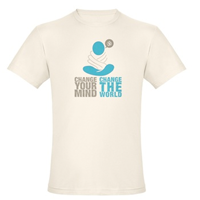Amartya Sen explores “The Idea of Justice”
Filed under: Dharma,Karma,Knowledge,Zen
This post is inspired (and in a way I am inspired to write again on KarmaDude) by an interview I heard of the revered Dr. Amartya Sen, Nobel Laureate and economist. As articulate and lucid as he is in his conversation and as verbosely profound he is in his writing, Dr Sen never fails to instill a sense of ponderous thought and an almost sub-consciously Socratic experimentation on topics we otherwise hardly think about. One such topic is the idea of what is “just” around us.
It is abundantly clear that when it comes to pondering and even concluding and proposing, the veracity and verbosity of Dr. Sen’s mind is limitless, as evident by the 400 pages he dedicates on the topic in his new book The Idea of Justice. Amazon.com’s one-click shopping says the book is in the mail – but if the one hour interview on NPR and the few book reviews I have read are any account – I am certain of one thing – the book will be a challenging experiment in getting one’s mind around the complexities of perception, context, culture and the complexities of judgement of the world around us. It is certainly not a far stretch if I were to claim that the pursuit of a 360 degree view, as Dr. Sen so often engages in, is nothing less than a burden on the far less capable minds of his readers. Nevertheless, it is only through the partaking and even communion of such thought exploration with the thought leaders of our time, that one can truly sharpen one’s own understanding of the world around us. If Dr Sen is the Socrates among us then we must oblige in playing the Plato’s of our time.
In such Socratic thought experimentation, Dr. Sen puts forth a wonderful, complex and thoughtful conundrum, the puzzle that puts us in a dilemma – one of chosing between – what is socially equitable versus what is remdially just. Dr. Sen presents the following puzzle for us:
Three children — Anne, Bob and Carla — are quarrelling over a flute: Anne claims the flute on the ground that she is the only one of the three who knows how to play it; Bob demands it on the basis that he is so poor that — unlike others — he has no other toys to play with and it would therefore mean a lot to him if the flute were given to him; and Carla says that it belongs to her because she has made it with her own labour.
Moreover, Dr. Sen pleads us to imagine that each child does not question the veracity of the other child’s claims or even the relative importance, but chooses and strives to make an argument purely on his/her own claim and situation. While he indicates in his interview, that he is perfectly aware that real life situations are often combinations of the predicaments of these three children, it behooves us to understand the absolute distinction and consequences of one’s alignments and helps us be compassionate about the alternative thought process. This kind of self-revealing thought experimentation is what makes Dr. Sen a genius and in my view almost Socratic. It is even more fortunate that in today’s connected and communicating world, our Socrates can challenge all the world as his pupils and not just a single Plato.
The flute metaphor is applicable to so many situations around us that we constantly face not all of them under the name of justice today. From the situation in the middle east between Israel and Palestine routinely covered in the daily news, to something a lot less conspicuous but perhaps equally important such as whether non-profit organizations should pay workers in under-developed countries for their labor, or challenging some pharmaceutical companies to discount AIDS drugs in poorer, more acutely affected continents, as well as issues closer to home such as healthcare for everyone and fair and equal education for every child – the sense of what is just overrides so much of our judgement and inclination. And such a big part of this sense of justice depends on where we stand when we evaluate the question at hand.
In many ways similar to the deep sense of conflict faced by Arjun when on the battlefield about launch his weapons on those who were part of his own extended family in the name of what is just, this is what makes eastern thought so compelling and appealing. It may sound like its self-congratulatory – but even in objective terms it would not be a stretch to state that the exploration of such complexities of circumstance, context and perceived justice is what makes eastern thought far more advanced than classical and contemporary western philosophy. Quite simply put, the exploration of the difference between whats black and whats white is much simpler than the exploration of the nuances, gradients and variances among the gray areas in between the two extremes. Only through the exploration of the latter can one truly find a level of reasoned, compassionate, holistic understanding of a given situation and a just solution that can prove to be a sustainable remedy. This could only be explained by an economist and rightfully so by a Nobel prize winning one. I cannot wait to receive the “granth” (treatise) and eagerly but anxiously dive in its complexities on my own. If nothing else, I will at least be armed with the common heritage of eastern Indian thought and the propensity to delve into the gray areas that I hopefully share with Dr. Sen.




















